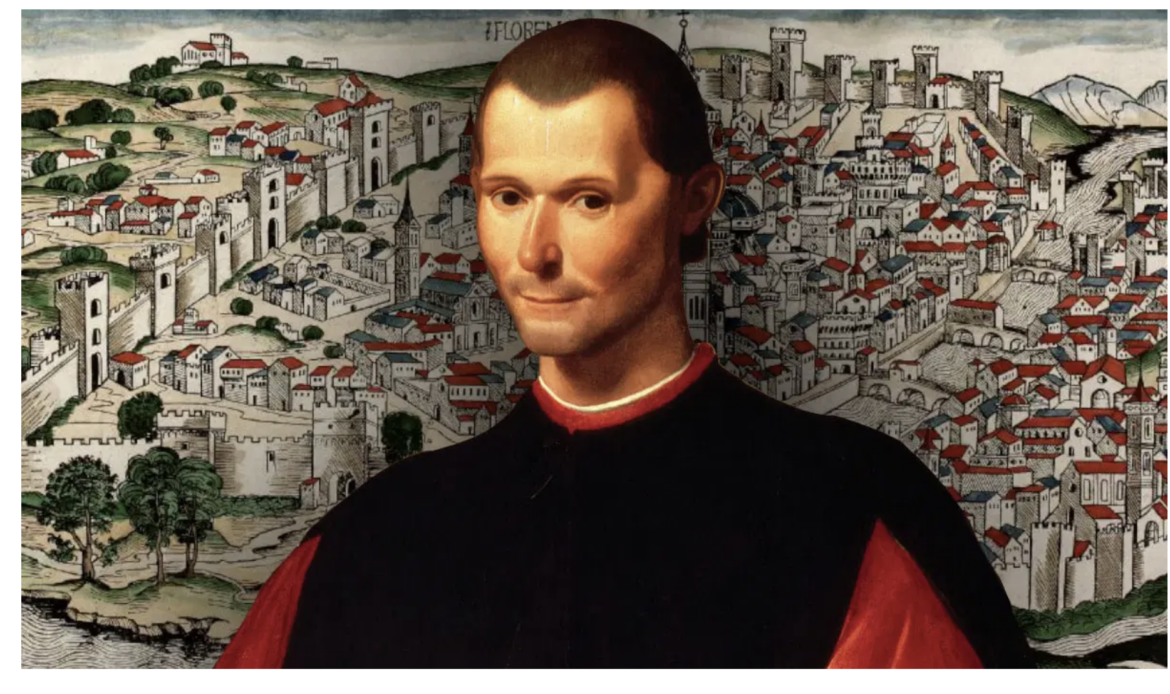In his recent article for The National Interest, James Holmes delves into President Donald Trump’s strategic deployment of executive orders and policy shifts during his initial month in office, suggesting that Trump’s approach reflects a deep understanding of Machiavellian principles.
This perspective aligns with the insights of political philosopher James Burnham, who, in his seminal work The Machiavellians: Defenders of Freedom, emphasized the enduring relevance of Machiavellian thought in political leadership.
Niccolò Machiavelli, the renowned 16th-century political theorist, advocated for a pragmatic and, at times, ruthless approach to governance. He proffered that effective rulers must be willing to make difficult decisions, prioritize state interests, and act decisively to maintain authority. President Trump’s early actions in office exemplify this Machiavellian ethos.
One of the core tenets of Machiavellian strategy is the necessity of swift and bold action, especially during the initial phase of leadership. Machiavelli argued that new rulers should establish their authority quickly to prevent dissent and consolidate power. President Trump’s rapid succession of executive orders and policy initiatives demonstrates his commitment to this principle, aiming to set a decisive tone and fulfill campaign promises without delay.
Moreover, Machiavelli emphasized the importance of projecting strength and, when necessary, instilling a sense of calculated unpredictability to keep adversaries off balance. This approach, often referred to as the “madman theory,” involves leaders adopting an unpredictable persona to create uncertainty among opponents, compelling them to tread cautiously. President Trump’s unconventional style and willingness to challenge established norms resonate with this strategy, signaling to both domestic and international audiences that he is a leader who defies traditional expectations.
James Burnham, in his analysis of Machiavellian thinkers, highlighted the role of elites in shaping political realities. He contended that a clear-eyed recognition of power dynamics is essential for effective governance.
President Trump’s background as a businessman and outsider to the political establishment positions him uniquely to navigate and, when necessary, disrupt existing power structures. His efforts to challenge bureaucratic inertia and address institutional complacency reflect a Machiavellian understanding of the need for continual adaptation and reform to maintain a vibrant and responsive government.
Critics may argue that such an approach fosters division or undermines democratic norms. However, from a conservative standpoint, embracing Machiavellian principles does not equate to endorsing tyranny or amorality. Instead, it involves a realistic assessment of political landscapes and the fortitude to make decisions that, while potentially contentious, serve the greater good and ensure the stability and prosperity of the nation.
President Trump’s assertive actions, such as withdrawing from international agreements perceived as detrimental to national interests or implementing policies aimed at revitalizing the domestic economy, exemplify this commitment to prioritizing the well-being of American citizens. These decisions, though occasionally polarizing, underscore a leadership philosophy grounded in the belief that a strong and sovereign nation is the cornerstone of global stability.
Furthermore, Machiavelli advised leaders to be mindful of their public image and to cultivate a reputation that commands respect, even if it necessitates strategic displays of firmness. President Trump’s direct communication style, particularly through social media, allows him to connect with supporters and convey his message unfiltered, reinforcing his image as a decisive and unorthodox leader.
In conclusion, President Trump’s early tenure reflects a conscious application of Machiavellian principles, emphasizing decisive action, strategic unpredictability, and a pragmatic approach to governance. By channeling the insights of thinkers like Machiavelli and Burnham, he seeks to navigate the complexities of modern leadership with a focus on national interest and effective administration. While this approach may challenge conventional political norms, it offers a framework for robust and resilient governance in an increasingly complex world.


2 comments
Excellent observations and well written.
The only “drawback” is that for decades “educators” have denigrated Machiavelli as a cruel and ruthless dictator such that the mere mention of his name causes the ill-educated to shudder in fear. I’ve actually been waiting for the democrat traitors to begin using his name since Hitler and Nazi don’t work anymore. Great article. Thanks.